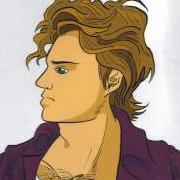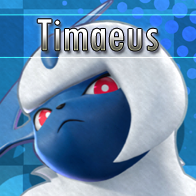Leaderboard
Popular Content
Showing content with the highest reputation on 02/12/2018 in all areas
-

Too many projects in general
Black_Doom and 2 others reacted to Mazedude for a topic
Not sure if this tidbit of advice will help, but here's how I finished American Pixels. That was a 5+ year project, tons of excitement at the front-end, and then it turned into... work. And here's the problem, I have a family and a full-time job, so I kept hitting the snag where I'd work all day, spend time with the family, have a pocket of free time at night, and then... not have any energy left. That, or there'd be this sense of "yay, I have time to work on music... and oh no, I feel obligated to work on that project and I'm really not in the mood..." So, that happened over and over, and occasionally I'd have a magic day off (holiday, whatever) where I'd get a wonderful 4 hours in a row to myself... and during those moments, I could tap into the creative juices and get it going again... but man, those little magical windows were rare. Like, once every few months rare. It got really frustrating seeing an album inch to completion in those sporadic bursts. The answer for me: wake up earlier. I'd set my alarm for 4:30am, be in my studio by 5am, and get in a solid hour, hour and a half every morning. My brain wasn't yet tired from the day job, I was rested and fresh, and the stuff that seemed like work before now seemed fun again. And, it actually helped my happiness level, so even though I was sleepy, I was giddy at work considering the progress I made in the early morning hours. And then I just had to ride and chase that feeling until things were done. It was tough to get started, but then it became strangely addicting.3 points -

Master Mi - Paradise
Thirdkoopa and 2 others reacted to timaeus222 for a topic
Or, you could actually try the advice first and make judgment calls afterwards... If you don't want the critique, then don't ask for it. If you never cut frequencies and you boost instead, then I can almost guarantee that your music will sound resonant somewhere in the midrange. If you neither cut nor boost, then you'll likely get midrange clutter that makes your lead compete for attention. I get that you can adjust volumes, velocities, and panning. But those are not the prominent issues here. In fact, even real orchestras need EQ to sound right. It's often not because the instruments were faulty... it's generally because the microphone(s) used were, and EQ is often necessary to even out the frequency pickup of the microphone(s) used.3 points -

Master Mi - Paradise
Master Mi reacted to timaeus222 for a topic
So... you're saying that people's ears got... worse... over time? o_o Even a person like me, who can't really stand pop music, can admit that whoever's doing the production for each pop artist generally does quite a pristine job. Anyways, I get your point that orchestration didn't require EQ for performances to the general public in the past, but we're talking about a digital context here. We can (and do!) use orchestral instruments in a digital setting now, and in that setting, EQ (and volume and panning tweaks) is necessary to even out the orchestral performances, which are necessarily recorded to be produced into a song in the first place. An example that immediately comes to mind is that maybe a contrabass recording picked up too much bass, and would make the mix muddy (bass + reverb = mud!); then it would require some cutting to clear out the low end in the context of the mix.1 point -

Master Mi - Paradise
timaeus222 reacted to Master Mi for a topic
But the orchestra exists much longer than microphones, EQs or digital music production. So they had to solve the frequency issue with the things they had there (right choice of instruments, fitting octaves/pitch, fitting articulations, greater use of volume and timing of each sound event, right "panning"/deployment of the musicians/players of the instruments) if they played the orchestra live for the public. I don't think that those ancient orchestras and ensemble sounded bad without this high tech stuff - maybe rather the opposite. But I think that the people in those days could have had sharper senses, sharper minds and probably a greater knowledge of acoustic sound design within the technological possibilities the had in those days.1 point -

Too many projects in general
Supercoolmike reacted to Jorito for a topic
At the end of the day, remember there's an immense reward and kick in actually finishing something. Doesn't matter if it's music or something else. Starting something new is easy, seeing it through to the end is a different thing. Stick with it, see it through. It's worth it, and it gets easier the more you do it. The reward of actually finishing a piece of music, and getting it out there is a very powerful motive. Meteo has it right, there's always this goal that you can chase and aim for. Doesn't matter if it's the first track you upload to your own channel, getting your first track posted here on OCR, doing something cool with an album. Having a goal is a big help, and one of my things I already have in mind before I start. I am not one for aimless noodling, I guess For me, I usually have a broad outline of what I think I want to do when creating a piece of music before I fire up the DAW. Part of that outline is a genre/style and some vague hints about instrumentation I might want to try. That outline also has a checkbox on it to add an intro and an ending. It keeps things focused, but it's also not set in stone so if inspiration strikes or something interesting happens along the way, I make changes. But I do keep the outline in mind I created (and write down in some cases) before I start. A good trick is also to have a deadline, either an external one or an internal one. Joining a compo here will help you do that, or an album project with a steep deadline (I happen to be collab'ing on a Chrono Cross remix that we started on Monday and will probably be finished somewhere in the next few days). Having said that, having multiple projects going on is not a bad thing. Apart from the aforementioned Chrono Cross track I have 2 other tracks in progress right now, and that's pretty common. That way, I can shift easily to one of the other tracks in case I get stuck in one, am waiting for recordings to come in or are just not inspired right now to keep working on the same track again. But it's crucial that you want to finish what you start, and the only way to do that is... well, to just do it. It's not always easy, but worth it, and it gets easier.1 point -

Too many projects in general
Supercoolmike reacted to The Coop for a topic
Don't be too down on yourself, Supercoolmike. There's nothing wrong with hopping from song to song if you have a bunch of ideas. But at some point, you need to focus. It's fine to play with melodies or a set of harmonies to get a feel for them and see if they could go somewhere, seeing as that's where so many song's start. And of course, getting ideas down so you don't forget them is important. But you need to return to those ideas for them to get anywhere. Don't just focus on the part you thought was cool sounding, because that's only one piece of the puzzle. As someone who draws, writes and composes, I can tell you first hand that in any art, there's going to be a time when you have to work on something that's going to feel tedious; that's not the part you really want to work on. Maybe it's a scene that has nothing to do with a plot point that you can't want to get to, maybe it's redrawing a minor character's facial design for the 20 time, maybe it's EQing a new set of instruments that'll be used for one small part of a song... it's always going to be something. The thing is, you have to prime the canvas before you can use it. You have to mix the paints before you get the color you're after. And that kind of "feels like I'm not making progress" work will always be there at some point to varying degrees. But if you don't get past that hump, nothing you do will ever reach the proverbial finish line. It's great to have those bursts of inspiration and get a bit down, but the inspiration is just the "Wow! This sounds cool!" part. It's the character reveal behind who killed who, or the physical trait that makes your character look interesting. The real work comes afterward, when you have to build the song sections that come before, are around, and that come after the "cool" part. You need to build the small plot points that lead up to the murder and chose the settings/quirks/background that would cause your character to have that physical trait. You can't avoid it. But here's the thing. As you work on your song/drawing/story, you'll find more bits of inspiration. You'll compose that new musical hook, create that bit of backstory, or design a facial trait that pulls you back into what got started with the initial burst of inspiration. But that can't happen unless you go back to what you did. It sounds like you've got the bits and pieces in place; the seeds of songs, so to speak. Now you need to pick one and listen to that bit repeatedly to get it into your head and start your mind focusing on it. Pick it apart, shuffle parts of it around, play with the harmonies and melody... hone in and see where your thoughts take it. Even if what you're doing winds up not working after two hours, you're still staying focused and trying to get it to work. You're still trying to pull more ideas out of what you've already done to make progress. So my advice pretty much mirrors what Meteo said. Sit down, pick a track and focus on it. I had musical and story ideas sitting around on paper, tape and PC quite literally for decades that just went nowhere because I didn't put in the effort to push them past that "this sounds cool" phase. So don't be like me and sit on ideas for years. Get your ass in gear, hunker down and push through the workload that's ahead of you with your music. Don't let it become a "what if...", because that shit will haunt you.1 point
